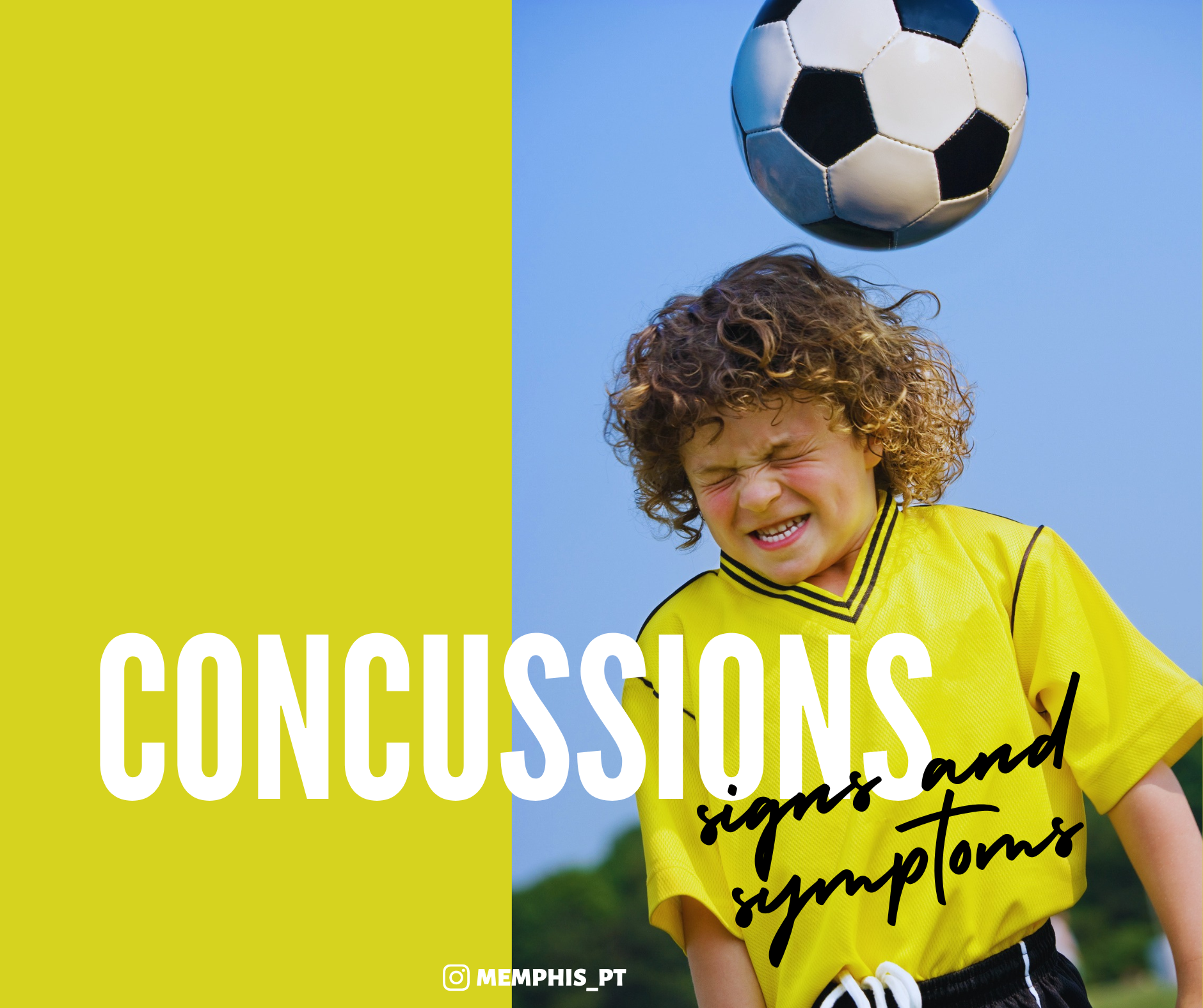
A concussion is a traumatic brain injury that can cause the brain to not work how it normally should. Our brains are cushioned from everyday jolts, bumps, and hits. So, a violent hit to the head or upper body can cause your brain to slide back and forth forcefully against the inner walls of your skull. The most common causes of concussions are falls, sports injuries, and car accidents.
A concussion can happen to anyone. However, they may have a more serious effect on younger and less developed brains, putting teens at the greatest risk for them. High-contact sports such as football, soccer, ice hockey, lacrosse, field hockey, and wrestling put athletes at the greatest risk for a concussion.
Not all symptoms of a concussion can be seen, and some will not show up right away. Some concussion symptoms can show up right away while others may not show up until hours, or even weeks after the initial hit. Most concussions happen without the loss of consciousness. Every concussion should be addressed as soon as possible and correctly by a professional.
The most common symptoms after experiencing a hit to the head are headaches, loss of memory, and confusion.
Common Concussion Symptoms:
- Drowsiness
- Headache
- Memory loss
- Confusion
- Balance problems
- Difficulty speaking
- Delayed response to questions
- Nausea and vomiting
- Changes in sleep patterns
- Depression-
Danger Signs to Look For:
- One pupil is larger than the other
- A headache that gets worse and does not go away
- Weakness, numbness, or decreased coordination
- Repeated vomiting or nausea
- Slurred speech
- Seizures
- Drowsiness
- Difficulty recognizing people or places
- Increases confusion
- Unusual behavior
- Loss of consciousness
Click here to read more about what you should do if your child or teen is showing signs of a concussion.
While concussions are usually not life-threatening, they are still very serious. It is important to monitor any changes in how the individual is acting and feeling after suffering a hit to the head. You should see a doctor within 1 to 2 days if you or someone you know experiences a head injury. An athlete should never return to playing sports while signs and symptoms of a concussion are still present, and he or she has not yet been cleared by a healthcare provider.
Concussion Baseline Testing
A concussion baseline testing is an exam conducted by a trained healthcare professional. These tests are usually taken place pre-season and before the first practice. This test will check for concussion symptoms, as well as concentration and memory assessments.
After the case of a concussion and before returning to any physical activity, you should get a baseline test performed by a medical professional. The result of the baseline test will include information on safely returning to school and sports. Lastly, athletes should undergo concussion baseline testing annually. This will compare previous test results.
Read more about baseline testing here.
Any sign of a concussion should never go unnoticed or untreated. Physical therapy can help with eliminating pain without medication and design an exercise program to boost your stamina. They will monitor your progress at all times. Suffering a hit to the head can cause not only headaches, but also neck pain, and can affect your range of motion. Lastly, our physical therapist will provide tips to aid in a full recovery, as well as help their patients reduce the risk of future concussions.
